"Ignorance more frequently begets confidence than does knowledge: it is those who know little, and not those who know much, who so positively assert that this or that problem will never be solved by science." -Charles Darwin
There are problems with science today, no doubt. With all the knowledge we've accumulated about the Universe, from the smallest subatomic scales to the farthest recesses of deep space, there are still realms and regimes where our best theories fail, where the predictions and the data don't match, and where no known explanation is sufficient for the phenomena that shows up.
But this is where all the potential for scientific growth lives. Believe it or not, one of the most important scientific paradoxes for astrophysics, cosmology, and the Universe happened... in the wake of Charles Darwin! That's right, after On the Origin of Species, a crisis came about for physical science.
You see, Darwin's idea -- that the diversity of life on Earth was explained by the evolution and natural selection of organisms over huge amounts of time -- meant that, if Earth's life had a universal common ancestor, timescale of at least many hundreds of millions of years were required. And with the modern knowledge of geology at the time (in the later half of the 19th Century), which argued for an age of the Earth that was at least a couple of billion years old, we faced a conundrum.
All because of this guy.
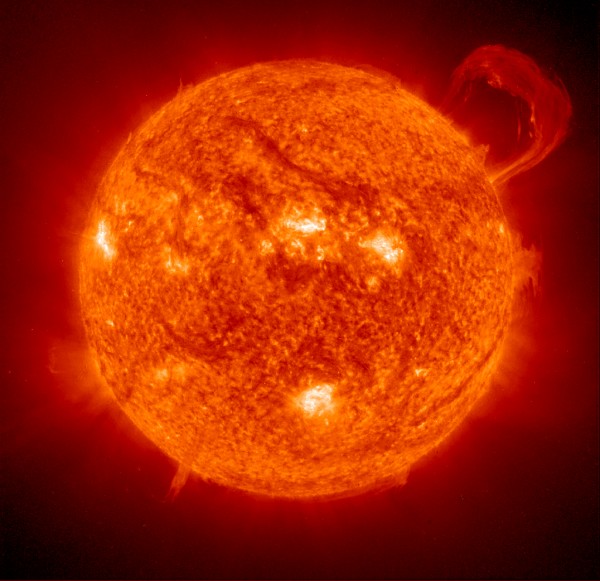 Image credit: NASA, via http://solarsystem.nasa.gov/.
Image credit: NASA, via http://solarsystem.nasa.gov/.
You see, if life-as-we-know-it has been around for hundreds of millions of years, that means that the Sun had to have been shining for hundreds of millions of years, too! And that's not such an easy thing to imagine, since the Sun is the most powerful thing in all of human (and Earth-life) experience. Putting out a continuous 4 × 1026 Watts of power, it's needless to say that adds up to a lot of energy over hundreds of millions of years!
But energy needs to have a source, and if you want to emit 4 × 1026 Watts for at least hundreds of millions of years, you'd better have an energy source that makes it physically possible.
This was one of the problems that (arguably) the greatest physicist of the day -- Lord Kelvin -- decided to take on. There was some suspicion that the Sun was made out of many of the same elements that the Earth was (due to the solar spectrum), including a very strong hydrogen signature. Based on that, Kelvin came up with three possible energy sources for the Sun:
- The Sun is burning some type of fuel, like hydrogen.
- The Sun is feeding off of comets, asteroids, etc., and burns the fuel from them for energy.
- The Sun -- being incredibly massive -- gets its energy from the incredible force of gravity.
And since those were the only three possibilities he could think of, he went and calculated how long the Sun could burn for -- emitting a continuous 4 × 1026 Watts of power -- before it ran out of energy.
 Image credit: user charleytown55il of http://laserpointerforums.com/.
Image credit: user charleytown55il of http://laserpointerforums.com/.
Here on Earth, hydrogen combusting (i.e., burning by combining with oxygen) has the potential to release a tremendous amount of energy. And the Sun is... well, it's kind of huge, with a total mass of around 2 × 1030 kg in there. If the Sun were made entirely out of hydrogen that was combusting at a rate so that it emitted the right amount of power, how long could it live?
The answer Kelvin came up with was a few tens-of-thousands of years. A long time, for certain, but not nearly long enough. So that ruled out the first option.
But what if comets, asteroids, and other transient bodies in our Solar System occasionally refueled our Sun? Could that enable it to burn for long enough, extending its lifetime to the hundreds of millions of years necessary to meet Darwin's requirements?
If only. Unfortunately, this was even easier to rule out; the amount of mass that would have been added to the Sun, over time, would have wrecked the orbits of the planets, in clear conflict with the laws of gravity. (And yes, even though General Relativity later succeeded Newton's theory, the argument is still valid.) So that option was out. And that leaves Kelvin's final consideration.
Gravity. Specifically, gravitational contraction, where the gravitational potential energy gets converted into light and heat. Just as, if you drop an object from a great height on Earth, it picks up speed (and hence, kinetic energy), a cloud of contracting gas (or plasma, or anything under its own gravity) will gain some type of energy to compensate for the new, lower-energy gravitational configuration. Kelvin was no doubt the world's foremost expert on this, as the mechanism by which this happens bears his name: the Kelvin-Helmholtz Mechanism.
The Sun, if it had contracted all of that mass down to its present size in such a way that it emitted energy at the observed rate (4 × 1026 Watts), couldn't have lived for hundreds of millions of years, but could have lived for about eighteen million years.
So that was a problem: Darwin needed hundreds of millions of years to explain biology, geologists needed billions of years to explain the Earth, and Kelvin placed an upper limit of only tens of millions of years on the age of the Sun.
But this seeming paradox was actually an omen of advance; Kelvin had no way of knowing that there was an entirely new type of fuel, that of nuclear fusion!
This would prove to be the way forward, and the resolution to the paradox presented by Kelvin and Darwin's irreconcilable findings, something unknowable to both men at the time.
Interestingly enough, some stars -- white dwarfs in particular -- do operate under the Kelvin-Helmholtz Mechanism, and because of their much lower luminosity (intrinsic brightness) than Sun-like stars, will shine for many trillions (or even quadrillions) of years before going dark!
We have a significant number of important paradoxes today that are difficult to reconcile, including the black hole firewall problem, the inability to marry quantum mechanics to general relativity, the puzzles of dark matter and dark energy, the strong CP problem, the puzzle of tiny but non-zero neutrino masses, and the hierarchy problem, to name just a few.
These are the edges of knowledge and understanding, and rather than marking the breakdown of science, these are actually beacons that point the way forward. And hopefully, just like you, I can't wait to find out what's next!

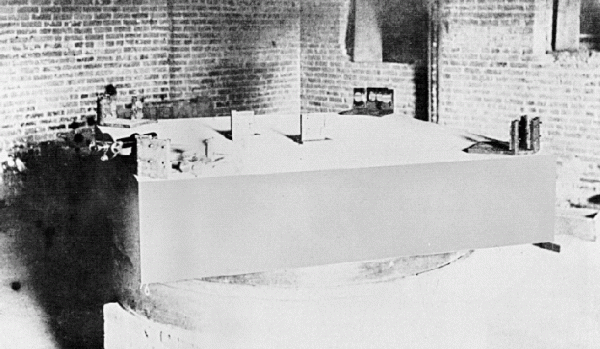
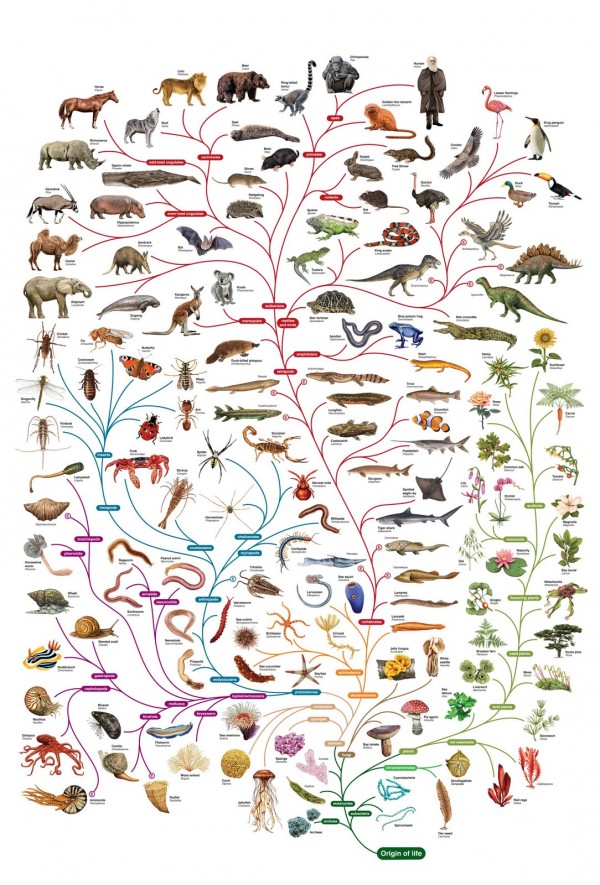
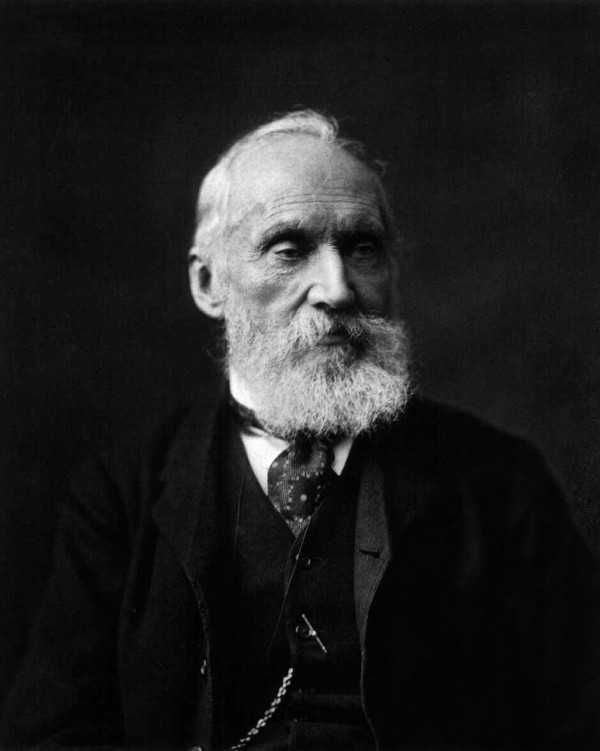
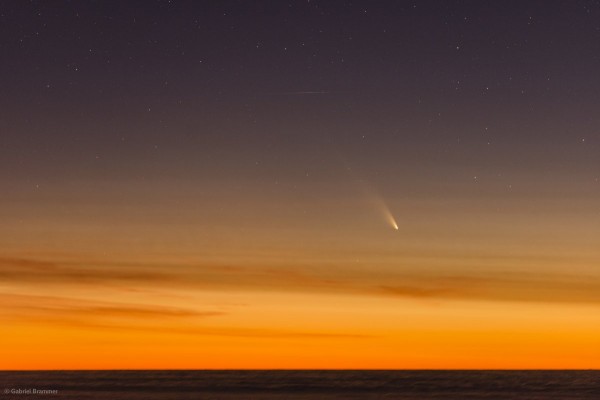
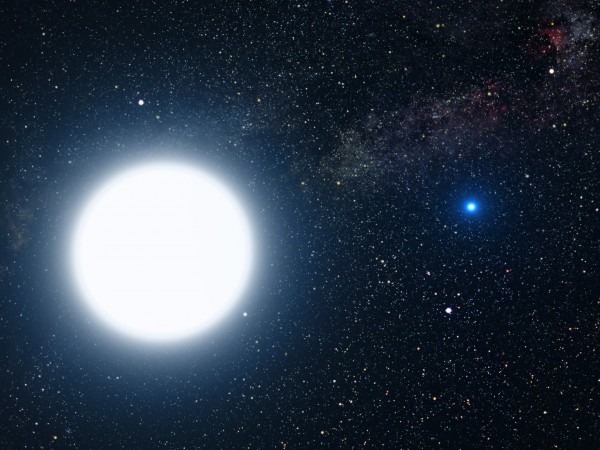

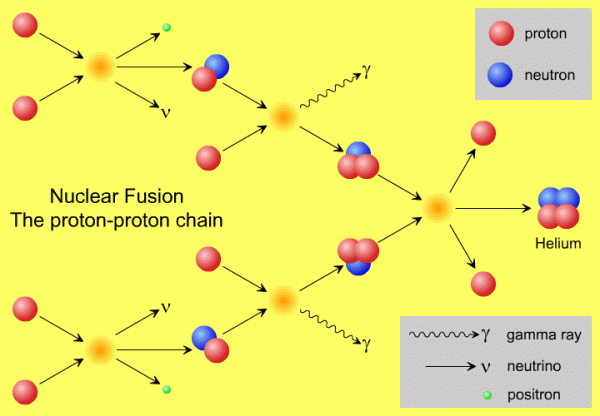
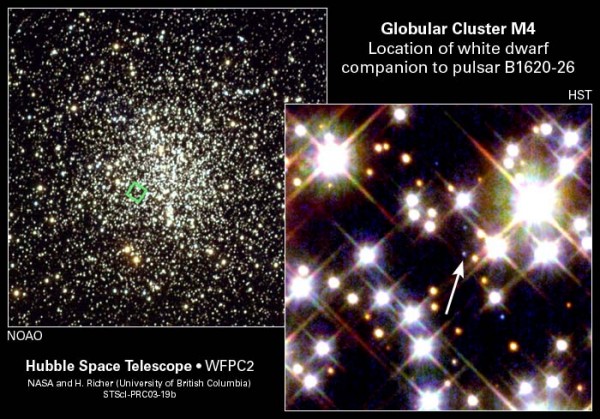
brilliant post
Here's to hoping that we eventually understand space-time well enough to make an Alcubierre drive work. F***ing space-time! How DOES it work?
Maybe you could have a series of articles about the paradox's that you mention at the end of this article?
Fortunately there was a New Zealander to sort it out.
"I came into the room, which was half dark, and presently spotted Lord Kelvin in the audience and realized that I was in trouble at the last part of my speech dealing with the age of the earth, where my views conflicted with his. To my relief, Kelvin fell fast asleep, but as I came to the important point, I saw the old bird sit up, open an eye, and cock a baleful glance at me! Then a sudden inspiration came, and I said, 'Lord Kelvin had limited the age of the earth, provided no new source was discovered. That prophetic utterance refers to what we are now considering tonight, radium!' Behold! the old boy beamed upon me"
LOL, Rutherford was a great bloke, and so was Kelvin.
Ethan: why don't you do some "weekend diversion" blog pieces on things like the black hole firewall problem, QM + GR, dark energy/matter, the strong-CP problem and the hierarchy problem.
I would read those. Eagerly.
John and L.Rowan,
You are going to love the "search this blog" feature at the upper right of each page. I tend not to write about physics too much on the weekend, as, you know, the whole "diversion" thing is about exposing my audience to something they might not normally encounter, but I have written about most of those topics prolifically in the past. For example:
Black hole firewalls
Dark energy (a few select pieces)
Dark matter (a few select pieces)
Strong-CP problem
The hierarchy problem.
And so on. :-)
Hi Ethan,
Great article! Fascinating to think about "deep time" quadrillions of years into the future. You might like the 5 Eras of the Universe - a book that considers time on a scale going out to 10^150 years (!)
Meanwhile, if you're looking for paradoxes in science, here's one from the world of nutrition. We've all been told that "a calorie is a calorie" when it comes to fat gain/loss, but that theory creates all sorts of paradoxes, 9 of which I've detailed here if you're interested - http://www.caloriegate.com/the-black-box/9-pictures-that-prove-beyond-a…
Hopefully you're right that the emergence of paradoxes precedes scientific leaps. :)
This was an interesting post, which raises additioanl questions.
1. Are there a finite number of physical laws meaning science can come do a dead end where all laws are kown, or are thare an infinite number- so there will always be new paradoxes to resolve?
2. Even if there are an unlimited number of new discoveries possible, will there come a point where humans are just not smart enough to discover any further laws?
Read Thomas Kuhn.
@Dave - was just about to write that to Alan :)
Logically, a paradox is a boo-boo, not a design feature, or a 'beacon' of discovery...unless by 'discovery' you are trying to locate errors in reasoning.
Paradoxes are a contradiction. If your argument contains a contradiction, something is wrong with either your assumptions or reasoning, literally. When scientific or mathematical arguments contain paradox, something is wrong with the assumptions/reasoning, and you should unravel it before proceeding or everything that you build atop the paradox is undermined logically. This does not always happen, for various reasons (none of them legitimate excuses) sometimes a paradox is allowed, which will only create an endless stream of divergent paradoxes eventually, just as with a lie, once you allow the first, an endless succession of lies occurs to try and prop up the first, growing ever more complicated as ever more contradictions are created with other facts (just think of the snowballing effect in Seinfeld). Philosophically, lies, contradictions, and paradoxes will diverge from reality, where truth or accurate facts will converge on reality. When the argument used to defend a paradox becomes 'complexity' itself (trust me, I'm an expert, it's too complicated for you to understand), you are being mislead or lied to.
P.S. Before anyone gets excited about the paradox of 'black hole information firewalls' or other theoretical stellar phenomena, please realize the only place a black hole exists is in a completely mathematical space containing no matter, not actual reality. Google "Ric=0", all the black hole nonsense revolves around it . All black hole math is based on initial contradictions or paradoxes which exclude them from being representational of actual reality. There may very well be super dense objects in the universe, but they don't function according to nonsensical paradoxes or the badly fudged math used in General Relativity to describe a universe that can contain no matter, and no more than one object ( except for a singularity which is a point that has no size or volume), as the field equations used are highly non linear (you can't insert more piles of matter by the very definition of NON LINEAR) and have no solution for two or more objects. Beware of used car salesmen who drive around in motorized wheelchairs while hawking 'black hole theories '.
"please realize the only place a black hole exists is in a completely mathematical space containing no matter"
Odd, since a black hole requires matter. No matter in the black hole = no mass = no gravity = no black hole.
"Beware of used car salesmen who drive around in motorized wheelchairs while hawking ‘black hole theories ‘."
You missed out "And I have a reasonably priced car for you, one careful lady owner!"...
CPT: I share your sentiment, but would say that it isn't GR per se that's at fault.
Ethan: thanks. I had a look at a couple of those articles. Shame they aren't current, because I could I say a thing or two. For example, have you ever read what Friedwardt Winterberg has to say about firewalls? From what I know of fundamental physics, he's right.
There's a minimum about of energy associated with 1 bit of information, depending on temperature.
If we know a neutrino, then it must have at least the mass associated with it's information?